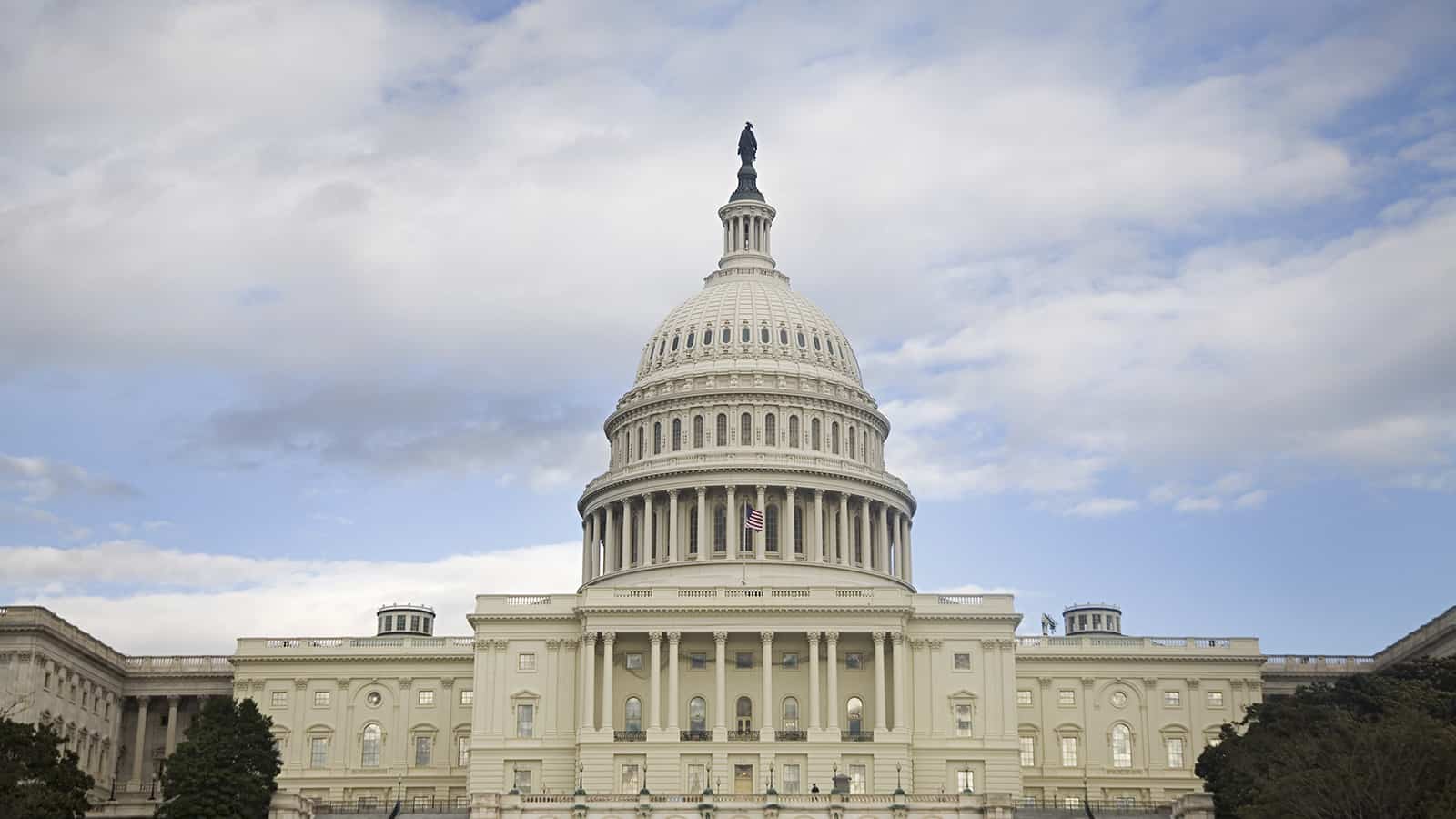NYT Investigation: Pharmacy Benefit Managers Drive Up Costs for Employers

Although they were created to keep prescription drug prices down, pharmacy benefit managers “frequently do the opposite” (The New York Times, subscription)—and that’s one of the main reasons the NAM has long advocated for their reform.
What’s going on: “The job of the P.B.M.s is to reduce drug costs. Instead, they …
steer patients toward pricier drugs, charge steep markups on what would otherwise be inexpensive medicines and extract billions of dollars in hidden fees, a New York Times investigation found.”
Why it’s important: PBMs frequently charge employers and government programs, such as Medicare, many times the wholesale cost of a medication and keep the difference, according to the Times.
- And it’s not just those taking prescriptions who pay; when drug costs are inflated, everyone ends up paying higher insurance premiums.
- What’s more, “[b]ecause of recent mergers, [the big three PBMs] are becoming more dominant, collectively processing roughly 80 percent of prescriptions in the United States.” That’s up more than 30% from just 12 years ago.
Working around a workaround: In 2018, in response to growing pressure from employers to get PBMs to share more of the discounts from drug manufacturers, PBMs set up entities known as group purchasing organizations.
- These GPOs pass savings to employers—but they “also began imposing new fees on drug manufacturers,” money they were not contractually bound to pass on to clients.
- The result: “Employers are none the wiser. They receive rebates. But they can’t see the billions of dollars in fees that the G.P.O.s take for themselves.”
Congress makes moves: Since the beginning of last year, seven House and Senate committees have passed PBM-reform legislation, including policies to increase transparency into PBMs’ business practices, delink PBM compensation from medications’ list prices and ensure that rebates are fully passed through to the plan sponsor or patient.
- The NAM has been crucial in educating lawmakers on the need for these reforms and continues to advocate for PBM reform to be signed into law this year.
The last word: “PBMs drive up health care costs for manufacturers and manufacturing workers,” said NAM Vice President of Domestic Policy Charles Crain. “Congress must act as soon as possible to enact comprehensive PBM reform that benefits employers by making PBM contracts more straightforward, transparent and predictable—and benefits workers by reducing the prices they pay out of pocket for their prescriptions.”
House Committee Approves PBM Reforms

The House Ways and Means Committee unanimously passed legislation Wednesday that includes much-needed reforms to pharmacy benefit managers, underregulated middlemen that raise health care costs for manufacturers and manufacturing workers (Fierce Healthcare).
What’s going on: PBM reforms contained in the Preserving Telehealth, Hospital and Ambulance Access Act include increasing transparency into PBMs’ business practices and delinking PBM compensation from medicines’ list prices. These changes will help reduce prices for seniors who rely on Medicare prescription drug plans.
- The NAM has been instrumental in advancing these reforms.
Why it’s important: “When Americans face soaring prices for medicines or treatments, there’s a good chance that is because a PBM has driven up the price,” NAM President and CEO Jay Timmons said Wednesday.
- “These middlemen operate with minimal transparency, and their practices distort the market, increasing the list prices patients pay for medicines while making it more difficult for manufacturers to offer quality, affordable health care benefits.”
What’s next: The legislation approved Wednesday applies to the Medicare market. The NAM is calling on Congress to enact similar changes in the commercial insurance market to lower health care costs for manufacturing employees who participate in employer-sponsored plans.
NAM Helps Strike Forced IP Transfer from WHO Draft

In a significant change that protects manufacturers’ intellectual property rights, an updated draft of the World Health Organization’s pandemic agreement no longer includes IP language that would have pressured or compelled manufacturers to turn their innovations over to foreign countries, including competitors such as China, POLITICO Pro (subscription) reports.
- Convincing organizations such as the WHO to reject forced IP transfers has been a top priority for the NAM, and this week’s announcement represents significant progress for manufacturers.
What’s going on: “The latest text has scrapped a clause stating countries will ‘consider supporting’ time-bound suspensions of intellectual property rights during pandemics. Instead, each country will consider supporting ‘appropriate measures’ to scale up the manufacture of products that could help stymie a future pandemic.”
- The draft is set to be put to WHO members next month for a vote at the 77th World Health Assembly in Geneva, Switzerland.
- Subject to applicable laws, under the draft agreement countries will also be required to “support … capacity-building for the transfer of technology and knowhow for pandemic-related health products on mutually agreed terms.”
- The text indicates that the pathogen access and benefit sharing system—which would require nations to share pathogen information “with the WHO in exchange for access to the resulting health products developed to fight the new threat”—is still under negotiation. Thus far, countries have been unable to agree on the terms of that exchange.
Why it’s important: IP waivers would significantly harm manufacturers and their ability to compete globally.
- The NAM led the charge with regard to the World Trade Organization earlier this year, when it warned policymakers in the U.S. and abroad about the problems inherent in expanding the WTO’s 2022 TRIPS waiver on IP rights to include COVID-19 therapeutics and diagnostics.
- As a result of that advocacy, the waiver was ultimately kept out of the WTO’s final Ministerial Declaration last month.
- In addition, in January, the NAM responded to the U.S. Department of Health and Human Services’ request for comments regarding the WHO’s pandemic preparedness agreement. The NAM urged that any IP waiver be removed from the WHO text.
The funding issue: Another challenge the WHO text puts off is the financing of all the initiatives it lays out.
- While it mentions establishing a “coordinating financial mechanism,” it does not detail how the mechanism would work.
Weight-Loss Drug Shows Potential to Treat Sleep Apnea

A weight-loss drug has shown potential in treating patients with sleep apnea, CNBC reports.
What’s going on: Pharmaceutical manufacturer Eli Lilly’s Zepbound, which is used to treat obesity and diabetes, “was more effective than a placebo at reducing the severity of obstructive sleep apnea, or OSA, in patients with obesity after a year, according to preliminary data” from two late-stage clinical trials.
- In October 2022, the Food and Drug Administration gave the medication a “fast track” designation for patients with moderate to severe OSA and obesity.
Why it’s important: “The results are an early sign of hope for the estimated 80 million patients in the U.S. suffering from OSA, which refers to interrupted breathing during sleep due to narrowed or blocked airways. Around 20 million of those people have moderate-to-severe forms of the disease, but 85% of OSA cases go undiagnosed, according to Eli Lilly.”
- Complications of the condition include excessive fatigue, high blood pressure, stroke, heart failure and type 2 diabetes—and treatment options are limited.
Meeting an “unmet need”: “Addressing this unmet need head-on is critical, and while there are pharmaceutical treatments for the excessive sleepiness associated with OSA, [Zepbound] has the potential to be the first pharmaceutical treatment for the underlying disease,” Eli Lilly Senior Vice President of Product Development Jeff Emmick said Wednesday.
- The sleep apnea trial data means that Medicare may be able to cover the drug, as under new FDA guidance, Medicare can pay for weight-loss drugs if they are used for more than weight loss alone.
Medicare Plans to Start Covering Weight-Loss Drugs

Three of the country’s largest health insurers will soon begin paying for a top weight-loss drug for certain people on Medicare with heart-related conditions, The Wall Street Journal (subscription) reports.
What’s going on: “CVS Health, Elevance Health and Kaiser Permanente said they would cover Novo Nordisk’s Wegovy for the use of reducing the risk of heart attacks and strokes in people who have cardiovascular disease, meet body-weight criteria and are covered by a Medicare drug-benefit plan.”
- The class of weight loss drugs to which Wegovy belongs was previously excluded from Medicare coverage by a U.S. law.
Why it’s important: “The decisions will ease the financial burden” of those who have been paying out of pocket for Wegovy and are likely to spur use of the drug among those who couldn’t afford or did not want to pay the full price.
- Approximately two-thirds of U.S. adults are overweight or obese, according to the recent NAM report, “Manufacturers on the Front Lines of Communities: A Deep Commitment to Health Care.”
- Excess body weight and obesity are associated with higher health-care costs for both employers and their workers. They also “raise the likelihood of other illnesses” and affect “productivity and the ability to complete job functions,” according to the study, which points to weight-loss drugs as part of the solution.
Why it happened: New guidance released last week by the Centers for Medicare and Medicaid Services holds that Medicare Part D plans, administered by private insurance companies, could “cover anti-obesity medications if the drugs receive approval for an additional use that is considered medically accepted.”
- This applies to Wegovy, which the Food and Drug Administration recently approved for reducing the risk of heart attacks and strokes among those with histories of heart disease and body mass indices above a certain threshold.
However … The use of Wegovy “for weight loss alone” will remain excluded from coverage under the CMS guidance.
New NAM Ad: Senate Must Pass Tax Bill Now

Earlier this year, the House passed legislation including key NAM tax priorities. Now it’s time for the Senate to do the same.
That’s the message of a new NAM digital ad campaign launched today and set to run over the next several weeks.
What’s going on: The 30-second TV ad—which will stream in Washington, D.C., and in the key states of Idaho, Kentucky, Louisiana, Oklahoma, New York and New Hampshire—asks viewers to urge the Senate to pass the Tax Relief for American Families and Workers Act, which cleared the House by a bipartisan vote in January.
- The legislation restores three key pro-growth tax provisions from the 2017 Tax Cuts and Jobs Act that expired in 2022: immediate expensing for domestic R&D, enhanced interest deductibility and full expensing.
The background: Earlier this month, Courtney Silver, president and owner of Ketchie and chair of the NAM Small and Medium Manufacturers Group, told the Senate Finance Committee about the impact the three provisions’ expiration has had on her family-owned precision machining company.
- “In the years following the TCJA, I was able to make a higher level of investment because I knew our tax code was going to have a baseline of certainty,” she said. “Today, however, I am unable to make these investments because of the uncertainty that Congress will address the expired TCJA provisions. . . . Because I am unable to realize the full deduction of my investment within the year I purchase it, the investment seems too risky and irresponsible.”
What’s needed: Senate Majority Leader Chuck Schumer (D-NY) has taken an early procedural step to put the House-passed legislation on the Senate’s calendar. But more needs to happen, and soon, the NAM’s ad tells viewers.
- “Vital tax provisions are expiring, harming our ability to compete globally and invest in new factories and equipment,” the ad says. “The House has done its job and restored these provisions with overwhelming support. The Senate needs to act now.”
NAM: Make Employer-Sponsored Health Insurance Easier

Manufacturers are committed to providing employer-sponsored health insurance to their workers, the NAM told Congress late last week—and that’s why any changes made to the Employee Retirement Income Security Act of 1974 should facilitate rather than hamper those offerings.
What’s going on: “ERISA underpins manufacturers’ ability to provide health insurance to their employees,” NAM Vice President of Domestic Policy Charles Crain said in response to a call by the House Committee on Education and the Workforce majority for comments on how to improve ERISA as the law’s 50th anniversary nears.
- “The law allows manufacturers to provide uniform benefits to workers located across multiple states, and to tailor those benefits to meet the unique needs of their workforces.”
Why it’s important: Manufacturers have continued to offer high-quality health care plans to their employees—even absorbing cost increases in recent years to keep premiums affordable—but they “increasingly find their efforts to be responsible stewards of their health plans undermined by the complexities, bureaucracy and ineffective design of the broader health care system,” Crain told the committee.
What should be done: It is ERISA’s federal preemption of state and local laws that allows manufacturers to offer uniform health benefits, Crain continued, and that preemption must be preserved.
- “Eroding or eliminating preemption would make it significantly more difficult for manufacturers operating in multiple states to offer their employees health insurance because the manufacturer would be forced to comply with cumbersome and potentially conflicting state-based rules, a costly and untenable situation,” he said.
- In addition to maintaining ERISA preemption, Congress should seek to “make health care data more accessible and user-friendly for employer plan sponsors,” and reduce regulatory burdens on employers.
- Given that pharmacy benefit managers contribute to the increasing costs of providing employer-sponsored health care, the NAM also continues to call for PBM reform to increase transparency into these underregulated actors.
NAM Echoes Senators’ PBM-Reform Call

Pharmacy benefit managers—entities that increase health care costs for both manufacturers and manufacturing workers—are long overdue for reform, the NAM said yesterday.
What’s going on: Senate Finance Committee Chairman Ron Wyden (D-OR) and Ranking Member Mike Crapo (R-ID) announced at a Thursday press conference that they will ask Senate leadership to include in a government funding bill at the end of March legislation to rein in PBMs.
- The NAM, which has been vocal for years about the need for PBM reform , immediately joined the senators’ call for action.
- “Manufacturers stand with Chairman Wyden and Ranking Member Crapo in their calls for PBM reform as soon as possible,” said NAM Managing Vice President of Policy Chris Netram. “Manufacturers are committed to providing health benefits—with 93% of manufacturing workers eligible for employer-sponsored health insurance—even as PBMs continue to drive an increase in health care costs.”
Why it’s important: PBMs make health care more expensive for manufacturers and manufacturing workers by putting upward pressure on the list prices of medicines. Additionally, the three largest PBMs control 80% of the market, giving them tremendous leverage when negotiating contracts with manufacturing employers.
- What’s more, they operate with very little federal oversight and offer minimal transparency into their business models.
What should be done: An overhaul of the PBM framework should include solutions that effectively address rebate, fee and contract structures.
- “PBM reform, including in the commercial health insurance market, must increase transparency, ensure PBMs do not pocket manufacturer rebates and delink PBM compensation from the list price of medications,” said Netram.
Manufacturers Join Senators’ Call for Immediate Action on PBM Reform
Washington, D.C. – Following a press conference today in which Senate Finance Committee Chairman Ron Wyden (D-OR) and Ranking Member Mike Crapo (R-ID) called for pharmacy benefit manager reform, National Association of Manufacturers Managing Vice President of Policy Chris Netram released the following statement:
“Manufacturers stand with Chairman Wyden and Ranking Member Crapo in their calls for PBM reform as soon as possible. Manufacturers are committed to providing health benefits—with 93% of manufacturing workers eligible for employer sponsored health insurance—even as PBMs continue to drive an increase in health care costs. PBM reform, including in the commercial health insurance market, must increase transparency, ensure PBMs do not pocket manufacturer rebates and delink PBM compensation from the list price of medications.”
Background:
- As part of efforts to reduce health care costs for manufacturers and manufacturing workers, the NAM has advocated PBM reform consistently, including in the commercial health insurance market.
- PBMs increase health care costs at the expense of manufacturers and manufacturing workers by applying upward pressure to list prices that dictate what patients pay at the pharmacy counter, pocketing biopharmaceutical manufacturer rebates and failing to provide adequate transparency about their business models.
- The NAM supports reforms that will benefit employers by making PBM contracts more straightforward, transparent and predictable and workers by reducing the prices they pay out of pocket for their prescriptions.
- Last year, the NAM launched a six-figure television and digital advertising campaign calling for reforms to ensure PBMs pass on prescription drug discounts directly to workers and employers.
-NAM-
The National Association of Manufacturers is the largest manufacturing association in the United States, representing small and large manufacturers in every industrial sector and in all 50 states. Manufacturing employs nearly 13 million men and women, contributes $2.85 trillion to the U.S. economy annually and accounts for 53% of private-sector research and development. The NAM is the powerful voice of the manufacturing community and the leading advocate for a policy agenda that helps manufacturers compete in the global economy and create jobs across the United States. For more information about the NAM or to follow us on Twitter and Facebook, please visit www.nam.org.
NAM: Withdraw Administration March-in Framework Now

The Biden administration’s proposed “march-in” framework would be devastating for American innovation and competitiveness and must be withdrawn immediately, according to the NAM.
What’s going on: In December, the administration issued proposed guidelines to enable the government to “march in” and seize manufacturers’ patents if their products were developed in any part with federal dollars.
- But the move—which a bipartisan group of 28 legislators opposed in a letter to the White House last week—would be fundamentally ruinous to manufacturing in the U.S., according to the NAM.
- “Undermining America’s world-leading patent system is a recipe for reduced innovation and significant economic damage, with a disproportionate impact on small manufacturers,” said NAM Vice President of Domestic Policy Charles Crain.
Price controls: The proposal is tantamount to government price controls, the NAM said.
- “If finalized, this threat to innovation would for the first time enable the government to set price controls on products that incorporate [intellectual property] from early-stage federally funded research.”
- “Manufacturers that do not comply with the proposal’s arbitrary and uncertain pricing criteria could see the government march in, seize their IP and license it to a competitor.”
Undoing advancements: Prior to the 1980 enactment of the Bayh-Dole Act, which allowed for the commercialization of federally funded research, groundbreaking discoveries “often remained stuck in the lab, as private-sector entrepreneurs and investors were unwilling to license innovative technologies given the uncertain path to commercialization,” the NAM said.
- “Limiting manufacturers’ ability to commercialize groundbreaking innovation means that early-stage research will remain on the shelf in university labs.”
